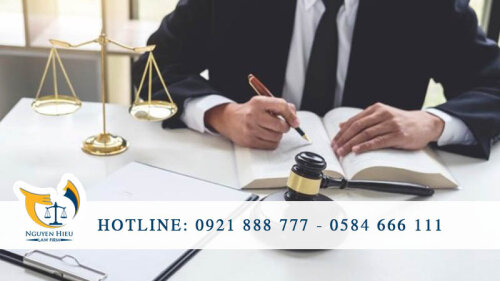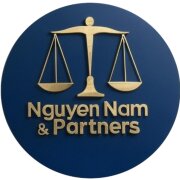Best Landlord & Tenant Lawyers in Dong Nai
Share your needs with us, get contacted by law firms.
Free. Takes 2 min.
Free Guide to Hiring a Real Estate Lawyer
List of the best lawyers in Dong Nai, Vietnam
About Landlord & Tenant Law in Dong Nai, Vietnam
Landlord and tenant law in Dong Nai, Vietnam, is governed by both national legislation and local administrative regulations. This legal area oversees the rights and responsibilities of those who own property (landlords) and those who rent it (tenants). The most prominent law is the Law on Housing and the Law on Real Estate Business, alongside various decrees and guidance from the Dong Nai Provincial People’s Committee. Typical landlord and tenant relationships involve residential properties, commercial spaces, and leased land. Agreements should be made in writing and often must be registered with the local authorities to ensure legal validity. Disputes can arise regarding rent, maintenance, security deposits, eviction, and the end of a lease term.
Why You May Need a Lawyer
Legal assistance is highly recommended for both landlords and tenants in Dong Nai for several reasons. Common scenarios requiring legal help include drafting or reviewing lease agreements, handling disputes over rent payments or property damage, addressing early termination of lease, pursuing or responding to eviction notices, and understanding changes in Vietnamese housing or property laws. A lawyer can also represent clients in mediation or at the People’s Court if disputes escalate. Their expertise is vital for foreigners or companies who may be unfamiliar with local procedures and legal obligations.
Local Laws Overview
In Dong Nai, the main national laws concerning landlord and tenant matters include the Law on Housing (2014), Law on Real Estate Business (2014), and the Civil Code (2015). These laws apply to all provinces, but Dong Nai also issues its own regulations to address local contexts, especially regarding land allocation and urban housing management. Key aspects include:
- Lease agreements must be in writing for leases longer than six months.
- Foreign nationals can lease property but face some restrictions on use and subleasing.
- Landlords must register leases at the local People's Committee for leases above six months.
- Security deposits are common but not strictly regulated by law.
- Notice periods for eviction or termination are specified in the lease or, absent this, by law.
- Repairs and maintenance responsibilities should be clearly detailed in the contract.
- Dispute resolution often starts with local mediation, but courts are available for unresolved cases.
Frequently Asked Questions
What is required for a valid lease agreement in Dong Nai?
A valid lease agreement should be in writing, particularly for leases over six months. It must include all essential terms such as rent, period, obligations, and be signed by both parties. For longer leases, registration with the local authorities is required.
Can a landlord increase the rent during the lease term?
Rent increases are only allowed if specified in the lease agreement. Otherwise, the landlord must wait until the end of the current lease term to propose new rent.
Are security deposits mandatory? If so, how much?
While security deposits are customary, they are not mandated by law. Deposit amounts are typically one or two months' rent, as agreed in the contract.
What are the responsibilities of landlords regarding property maintenance?
Landlords usually must handle essential repairs to maintain livable conditions unless the lease specifies minor maintenance as the tenant’s responsibility.
How can a tenant legally terminate a lease early?
A tenant can terminate a lease early if the conditions for termination are defined in the lease or if the landlord breaches significant obligations. Notice requirements vary but are typically 30 days, unless the contract states otherwise.
What steps should be taken if a landlord wants to evict a tenant?
A landlord must give written notice and allow the tenant to rectify any breaches, such as overdue rent. If the issue persists, the landlord may proceed to local mediation or the district court.
Are there protections for tenants against unfair eviction?
Yes, tenants are protected from arbitrary eviction. Landlords must follow legal procedures and cannot evict without just cause or without providing appropriate notice as stipulated in the lease or by law.
How are disputes between landlords and tenants typically resolved?
Most disputes begin with negotiation or mediation via the local People’s Committee. If unresolved, the case can be taken to the district-level People’s Court for judgment.
Can foreign nationals rent property in Dong Nai, and what restrictions apply?
Foreign nationals can rent property for residential or business use but may face limitations on lease duration and permitted property uses. They cannot lease and sublease property for profit without proper business registration.
What happens when a lease expires?
Upon lease expiration, the tenant may vacate, renew the lease, or continue month-to-month if both parties agree. If no action is taken, the default legal position is for the tenant to vacate, unless a renewal agreement is reached.
Additional Resources
People seeking further information or assistance in Dong Nai can contact several helpful organizations:
- Dong Nai Provincial Department of Justice - for general legal guidance and referrals
- Dong Nai Provincial People’s Committee - for lease registration and dispute mediation services
- Vietnam Lawyers Association in Dong Nai - for lawyer referrals and legal advice
- Legal Aid Center of Dong Nai - for free legal services for eligible individuals
- Vietnam Bar Federation - for locating licensed lawyers
Next Steps
If you face a landlord and tenant issue in Dong Nai, start by reviewing your lease agreement and gathering any related documentation. For disputes, try to communicate directly with the other party to resolve issues amicably. If you cannot reach a solution, consider visiting the local People’s Committee for mediation. For more serious issues or if you are unsure about your rights, contact a qualified lawyer who specializes in landlord and tenant law in Dong Nai. These professionals can guide you through negotiations, document preparation, and court proceedings if necessary. Remember to keep records of all correspondence and agreements as they may be required should a dispute escalate.
Lawzana helps you find the best lawyers and law firms in Dong Nai through a curated and pre-screened list of qualified legal professionals. Our platform offers rankings and detailed profiles of attorneys and law firms, allowing you to compare based on practice areas, including Landlord & Tenant, experience, and client feedback.
Each profile includes a description of the firm's areas of practice, client reviews, team members and partners, year of establishment, spoken languages, office locations, contact information, social media presence, and any published articles or resources. Most firms on our platform speak English and are experienced in both local and international legal matters.
Get a quote from top-rated law firms in Dong Nai, Vietnam — quickly, securely, and without unnecessary hassle.
Disclaimer:
The information provided on this page is for general informational purposes only and does not constitute legal advice. While we strive to ensure the accuracy and relevance of the content, legal information may change over time, and interpretations of the law can vary. You should always consult with a qualified legal professional for advice specific to your situation.
We disclaim all liability for actions taken or not taken based on the content of this page. If you believe any information is incorrect or outdated, please contact us, and we will review and update it where appropriate.










